Vancouver mayor's budget task force proposes 'potentially divesting' some city assets
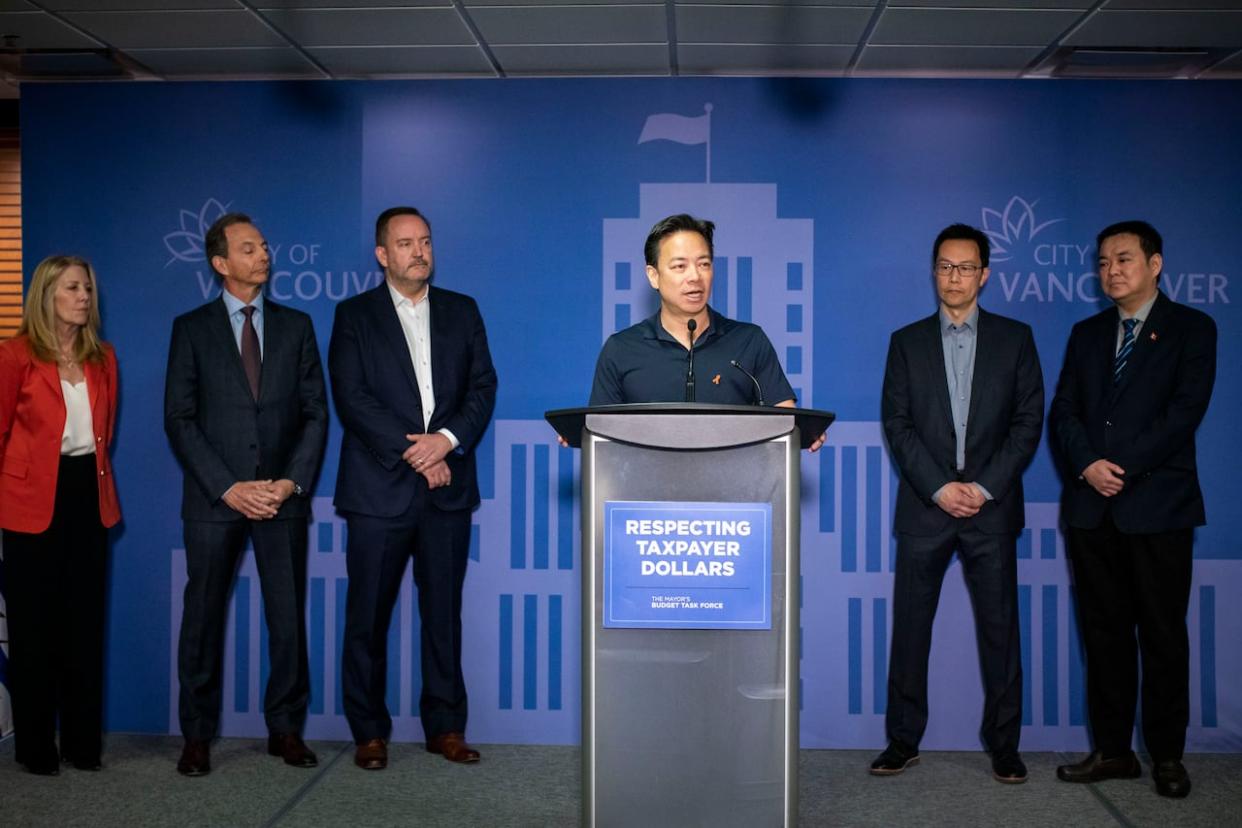
Vancouver Mayor Ken Sim's external advisors seeking efficiencies and new funding for the city's budget are advising the city narrow its scope of work, consider divesting itself of "non-core" assets and get philanthropic, business, and non-profit help for municipal priorities.
The Mayor's Budget Task Force made 17 recommendations in its report to council, posted online Wednesday and on the agenda for discussion at a meeting next week.
The task force was announced in April 2023 to look at the city's budget for any efficiencies and potential new revenue streams following a large tax hike.
The Vancouver Police Department, Park Board and Public Library — adding up to nearly a third of the city's budget — were outside the scope of their review.
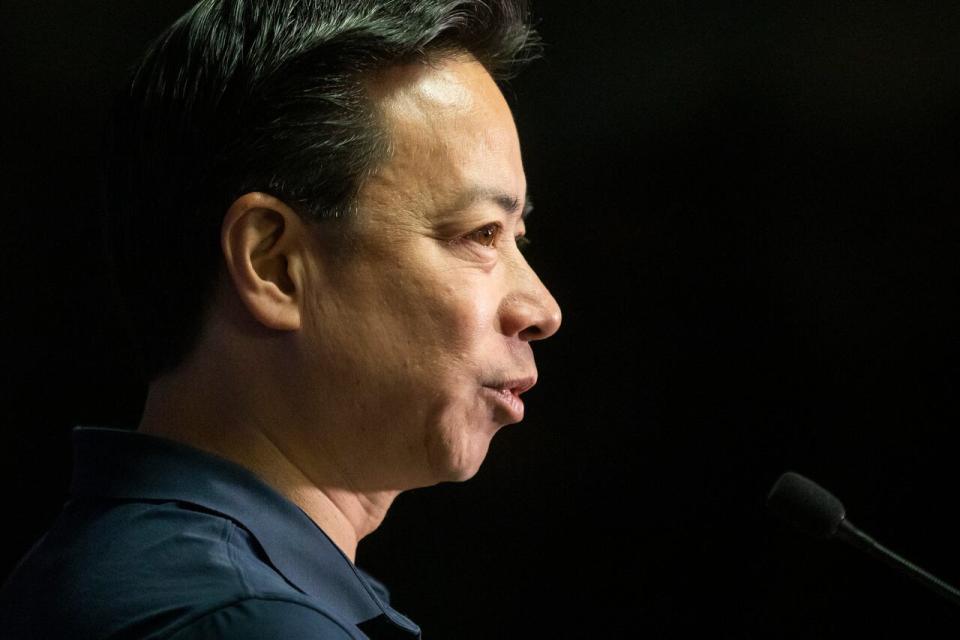
Mayor Ken Sim is pictured announcing the budget task force in April 2023, to look at the city's budget for any efficiencies and potential new revenue streams. (Ben Nelms/CBC)
The report highlights two "dire issues:" tax increases it calls "unsustainable" and a "staggering" $500 million annual gap in infrastructure funding.
"The City of Vancouver cannot continue spending taxpayer dollars at a rate that is unaffordable for its residents and businesses," chair Randy Pratt wrote in the report's summary.
"Our suggestions are more than recommendations; they are a blueprint for a sustainable, thriving future."
While some of the ideas put forward are unlikely to be controversial — such as seeking more money from senior governments or looking to new technology — others, like unloading assets to the private sector or targeting "absenteeism" in city departments may ruffle feathers.
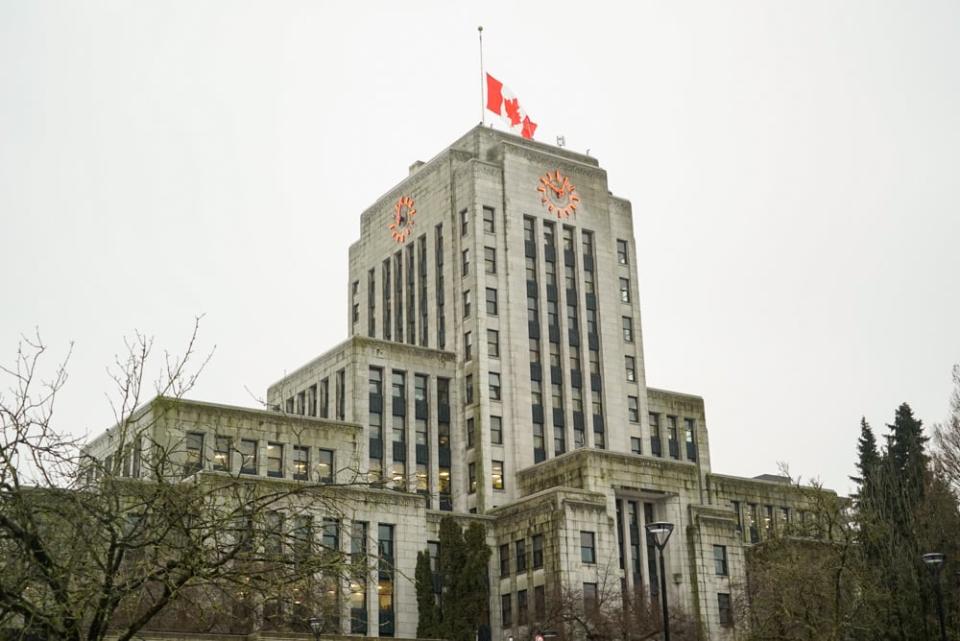
Vancouver city councils have instituted a number of large tax increases since the pandemic. (City of Vancouver)
What's the city's 'core jurisdiction?'
The task force broke down its 17 recommendations into three themes.
The first is defining the role of the city and keeping within it. It states the city does not have a clearly defined "core jurisdiction" and has increased spending in social housing, health care, child care, climate initiatives, and emergency aid.
As an example, it notes city fire crews providing medical response even though health care is the province's job. It calls for the city to "manage" spending like this.
The second theme is efficiency, and suggests embracing measured performance indicators, cross-department collaboration along with managing absenteeism by "ensuring holistic employee supports are in place, updating safety and health programs, and implementing time-tracking."
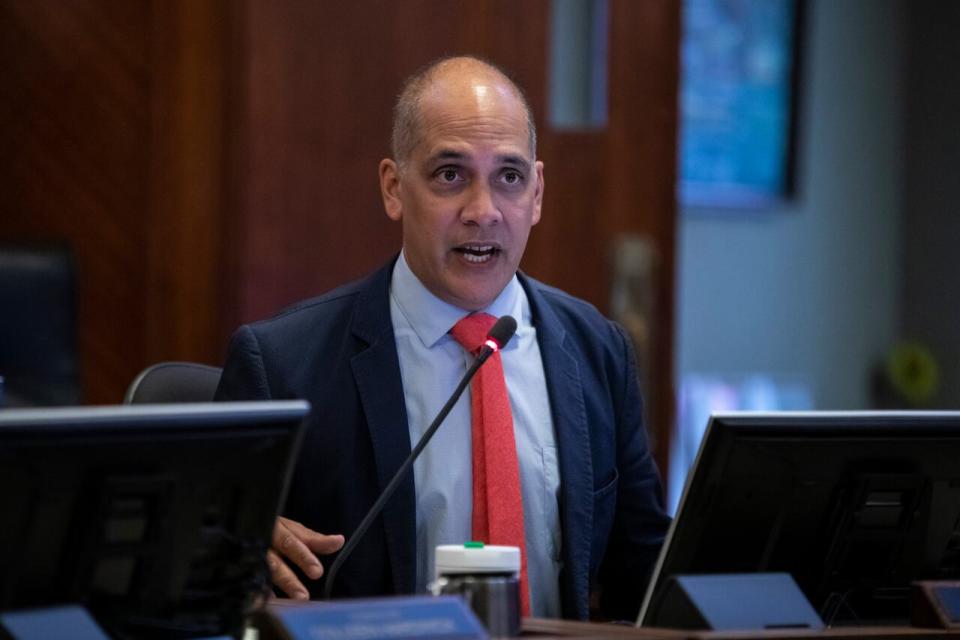
Coun. Pete Fry with the Greens said he was unimpressed with the recommendations of the task force. (Ben Nelms/CBC)
The final theme is managing capital assets. The authors recommend keeping what it calls core assets — roads, water and sewer systems, parks, and emergency services facilities — and "consider private sector ownership of non-core assets, and/or private management or public-private partnerships for them, enabling the City to better prioritize resources and focus on operational excellence within core areas."
Social housing should be more effectively managed, the authors say, by contracting out building maintenance, redeveloping existing lands instead of buying more, and consolidating housing management.
The city should also co-ordinate with philanthropic, business, and non-profit groups through an Office of Strategic Partnerships, for example, to sell naming rights on city assets, and allow donors to fund city programs.
Opposition councillors not impressed
The task force consisted of seven accountants, chaired by Pratt, who is also president of a real estate marketing and sales firm.
The report also named an advisory panel including Greater Vancouver Board of Trade CEO Bridgette Anderson, B.C. Ferries chair Joy MacPhail, Wade Grant with Musqueam First Nation and two city councillors with Sim's ABC Party: Brian Montague and Lenny Zhou.
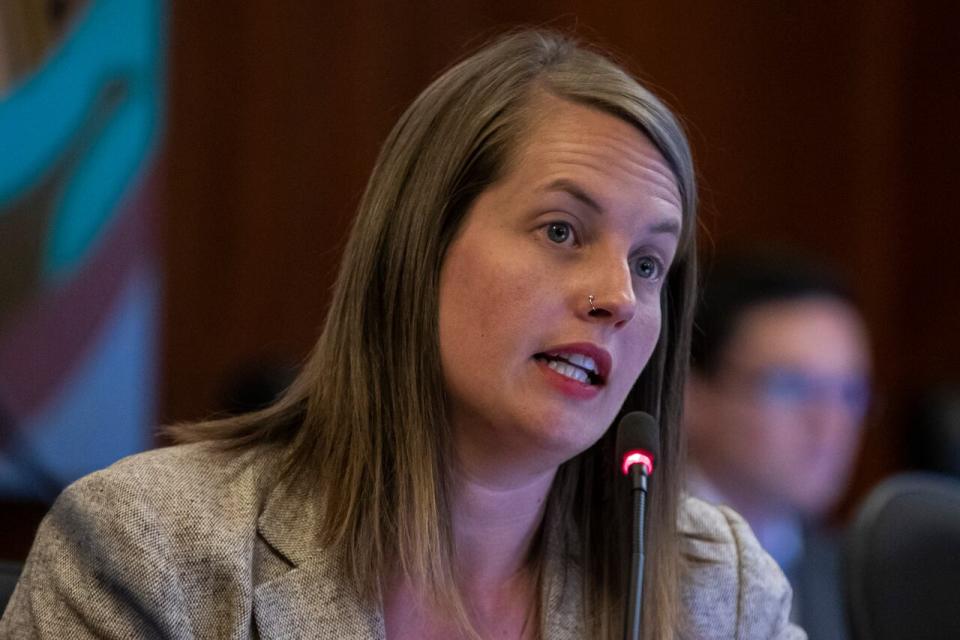
Coun. Christine Boyle said she was hoping the report would have more substantive ideas. (Ben Nelms/CBC)
It's not clear how closely the mayor and his ABC colleagues, who hold a majority on council, will follow the task force's advice. The recommendations are not binding.
CBC News asked the mayor for an interview Wednesday but neither he nor anyone from his party was made available.
Coun. Pete Fry with the Green Party criticized the report for coming in too late to inform the 2024 budget discussions, which included another large tax hike, and for what he described as its business-world mindset, replete with corporate-ese like "Six-Sigma Lean."
"We're not a business … we're a local government and our primary interest is not just profitability, but it's also about things like equity and fairness and good governance," Fry said.
"Those are all our responsibilities that we take on as an oath of office, so I find a lot of this troubling."
He highlighted the possible sale of city assets as a particular concern. "I can tell you once we start going down that road, it's really hard to go back."
Fellow Coun. Christine Boyle largely agreed with Fry, calling the idea of selling assets "a short-term solution to what the report clearly identifies as a long-term challenge."
"The recommendations from this report are the same sorts of conversations that the City of Vancouver and other local governments have been having for years and years now," Boyle said.
"I don't see how any of the recommendations in the report save us from a mayor that made very expensive campaign promises while simultaneously promising not to not to raise taxes as high as this council majority … [has] done so far."
The report is on Tuesday's council agenda.

